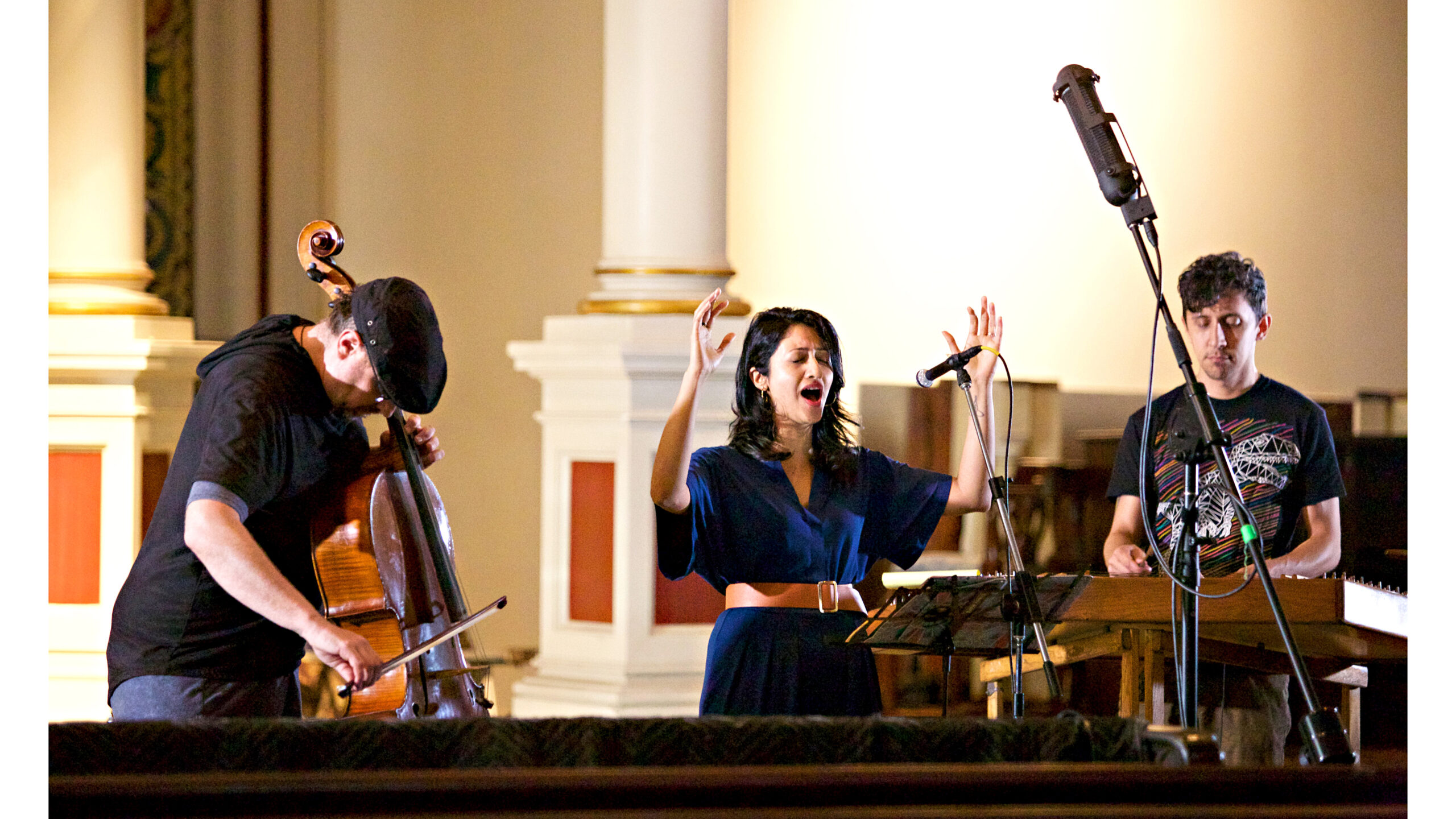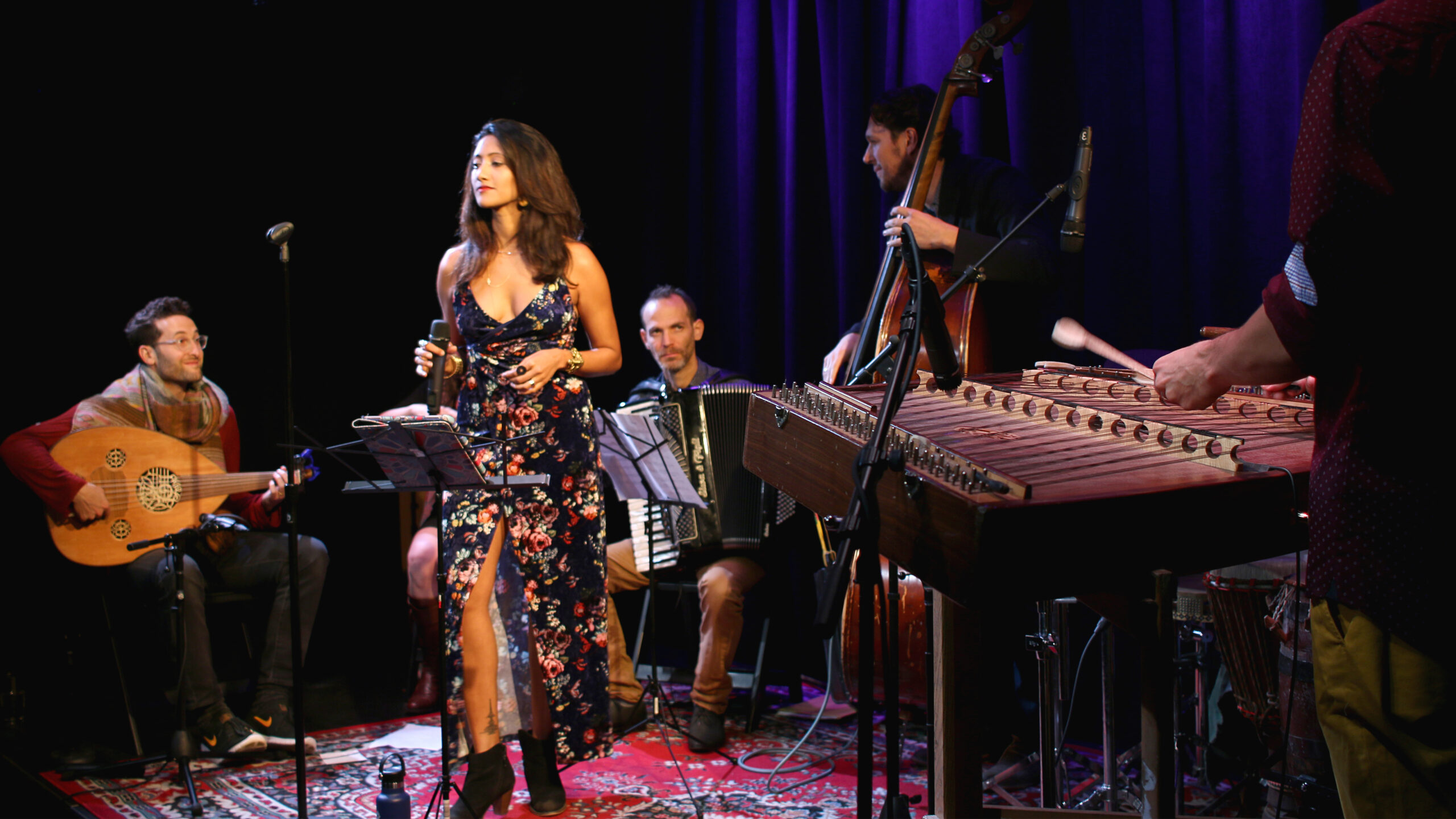
MUMBAI — There’s a moment in “Home” — the lead single of Indian-American musician Priya Darshini’s debut album “Periphery”, released May 15 — when the cello slowly fades out, ceding the stage to Max ZT’s diaphanous tones and Darshini’s rich, resonant vocals.
“I am here, do you see me? / Will I always be on the periphery?” she sings, stretching that last syllable into a full-throated lament. That question is at the core of the 9-track album, which has won a surprise nomination in the Best New Age Album category at the 63rd Annual Grammy Awards.
“I knew they were announcing it, but I was sort of detached from it,” the 36-year-old musician, athlete and entrepreneur told Zenger News over the phone from her home in Brooklyn, New York. “So, when my phone started blowing up it was a total surprise, and I had to go online to make sure it really happened.”
Though “Periphery” is her solo debut, Priya Darshini is already an experienced musician, with a number of collaborative releases to her credit in both the US and India.

Born in the southern city of Chennai and raised in the western metropolis Mumbai, she comes from a Tamil family with a strong cultural lineage. At the age of 4, she started learning Carnatic music from her mother and her grandmother, who was a professional Carnatic singer and Bharatanatyam dancer.
“Her name was Chandrika Krishnan, but ‘Priya Darshini’ was the title she was given for her excellence in dance and music,” she said. “So that’s how I got my name.”
After training with Carnatic vocalist Bombay Lakshmi Rajagopalan for a short while, Priya Darshini began studying Hindustani classical music under her guru Pandit Sunil Borgaonkar. In her teens, she also fell in love with jazz greats such as Ella Fitgzerald and Miles Davis, and avant-pop songstress Bjork. Music became a way for her to “travel” and “get to know other cultures and parts of the world.”
Soon, she was recording vocals for TV and radio jingles, even appearing on a number of Bollywood tracks. But her eclectic, boundary-blurring approach to music put her at odds with the assembly line nature of the Hindi film music industry.
“If you had to make a living out of music, you had to be involved in the film industry,” said Priya Darshini. “And, in those days, there was a very specific way in which people worked, and you just had to fall into that methodology. As a singer, I would just show up, sing what they told me to sing, and leave. I had no agency.”
This friction eventually persuaded her to leave for the US, where she’d already been spending a lot of time due to a recurring vocal injury, as well as her studies in film and acting at the New York Film Academy. She also spent some time on the road as part of American jazz virtuoso Roy ‘FutureMan’ Wooten’s Black Mozart Ensemble, learning how to perform alongside a rotating cast of incredibly talented and forward-thinking players. In 2013, she made the move permanent.

“The idea was to immerse myself in very different musical styles from across the world and get deeper and deeper into the art form,” she said. “I had to restart my career from scratch, and now I was in a pool of the best artists from around the world. There’s absolutely no space for mediocrity.”
Priya Darshini spent the next few years performing and collaborating with a wide range of artists and honing her craft. Apart from Roy Wooten, her list of collaborators includes Pearl Jam guitarist Stone Gossard, triple Grammy winner Jeff Coffin, former Prince collaborator Philip Lassiter, and Asian Underground pioneer Karsh Kale.
“She’s an incredibly versatile vocalist and composer, but what I really like about her is that she’s very innovative and forward-thinking,” said Kale, who first saw Priya Darshini perform with the New York collective Brooklyn Raga Massive (BRM).
The two ended up doing a number of tours together as well as collaborating on tracks like ‘Across the Ocean’ and ‘Following Sunlight’. “Not only that, she’s also a community builder. She started the Women’s Raga Massive in Brooklyn, for example.”
She also spent a couple of years as the artistic director for BRM, acted in a Hollywood film (‘The Letters’), experimented with theater and released an album of Indo-Arabic roots music with her former band The Epichorus. She’s also an ultra-marathon runner who runs a company (The Wind Chasers) that organizes extreme ultra-marathon runs across India, and serves on the trust of a Mumbai-based NGO. Maybe that’s why it took so long for her to write a solo record.

In April 2019, Priya Darshini and her band — which includes husband and hammer dulcimer player Max ZT and cellist Dave Eggar — performed at a fundraiser organized by New York NGO Daniel’s Music Foundation. In the audience was David Chesky, the founder of independent audiophile label Chesky Records, who was impressed enough to offer the band a record deal.
But it wouldn’t be your regular studio album, replete with overdubs and other studio trickery. Chesky Records albums are all recorded live in acoustically vibrant non-studio spaces like churches and temples, using a single binaural mic that aims to replicate a three-dimensional listening experience.
“I want to put the artist in your living room, as close to the pure performance as possible,” said Chesky about the label’s unique recording process and philosophy. “That’s why it’s very important that we have amazing musicians. Because we can’t really go in and start mixing and editing.”
Priya Darshini and her band initially toyed with the idea of recording re-arranged versions of folk classics, but quickly realized that the nature of the recording required a very specific songwriting approach. So, the self-proclaimed “perfectionist” found herself writing and recording eight new songs (along with one rearrangement) in the span of 12 days.
“We did each song 3 times over and picked a take,” she said. “That forced me to drop all my ego, just detach from the results, be in the moment, and put all of myself into my art form.”
The end result is an album that subtly weaves together sounds and ideas from Indian classical music, jazz, American folk and pop music into a shimmering gossamer soundscape. The abandoned church in which the album was recorded is a lingering presence, lending an ambience of time-worn melancholy to Priya Darshini’s songs that explore the meaning of home, identity and belonging in an increasingly globalized and polarized world. These questions have taken on even more urgency now, as anti-immigrant rhetoric and identity-based culture wars flare up all over the world.
“There’s this kind of constant ‘othering’ — not intentional — that made me feel like I was on the periphery of everything,” she said about the album’s central theme. “It was an uncomfortable experience for a while, it put me in a really deep, dark space, trying to figure out how I belong in this world. What is my cultural identity?”
That’s a feeling that will be familiar not just to immigrants and minorities, but to anyone who has found refuge in subcultures may have originated halfway around the world—Indian rappers, Indonesian punks, European K-pop fans. On ‘Periphery’, Priya Darshini offers one approach to work through that internal conflict.
“The process of writing this album led me to the realization that home is just when I can find stillness within myself, and embrace who I am in full,” she said. “I learned to be a hundred percent authentic, and to be cool with that.”

(Edited by Uttaran Das Gupta and Siddharthya Roy)
The post Indian-American Among Grammy Hopefuls With Debut Solo appeared first on Zenger News.
